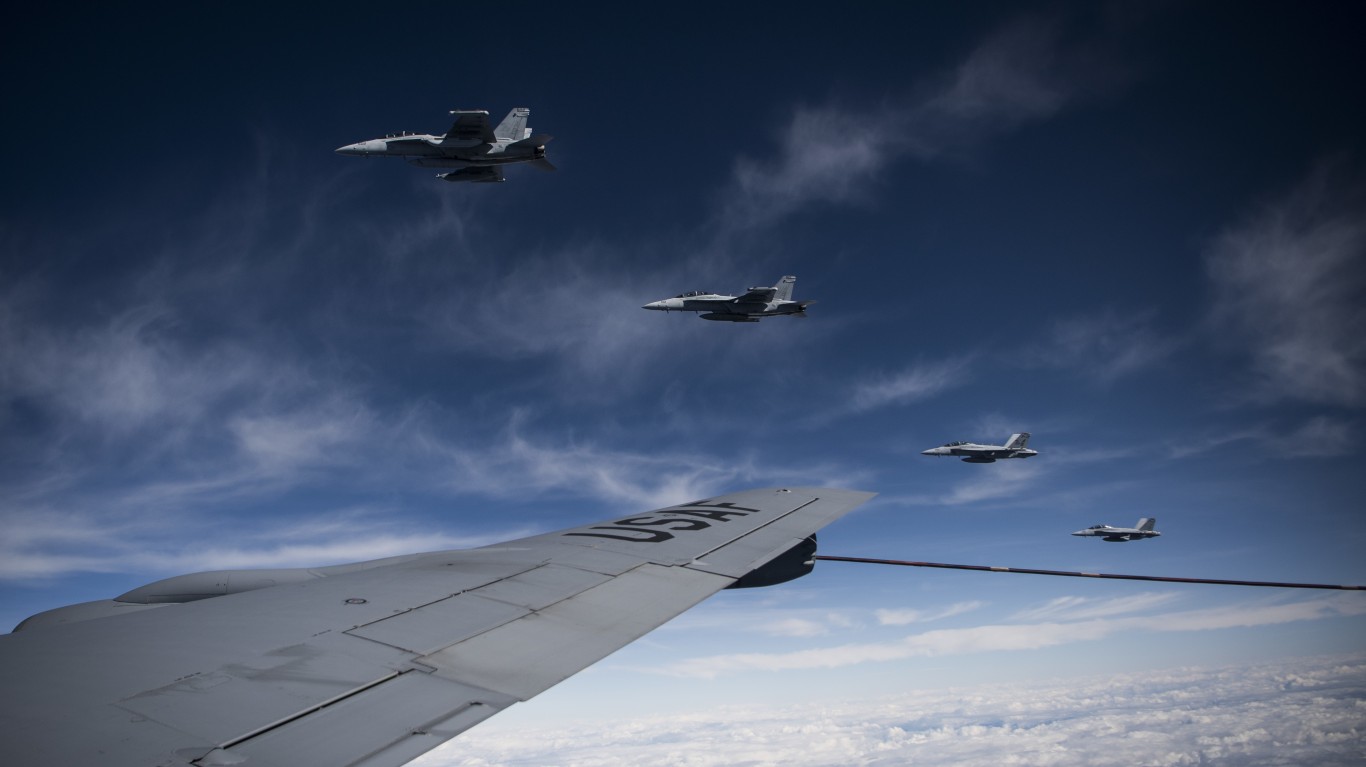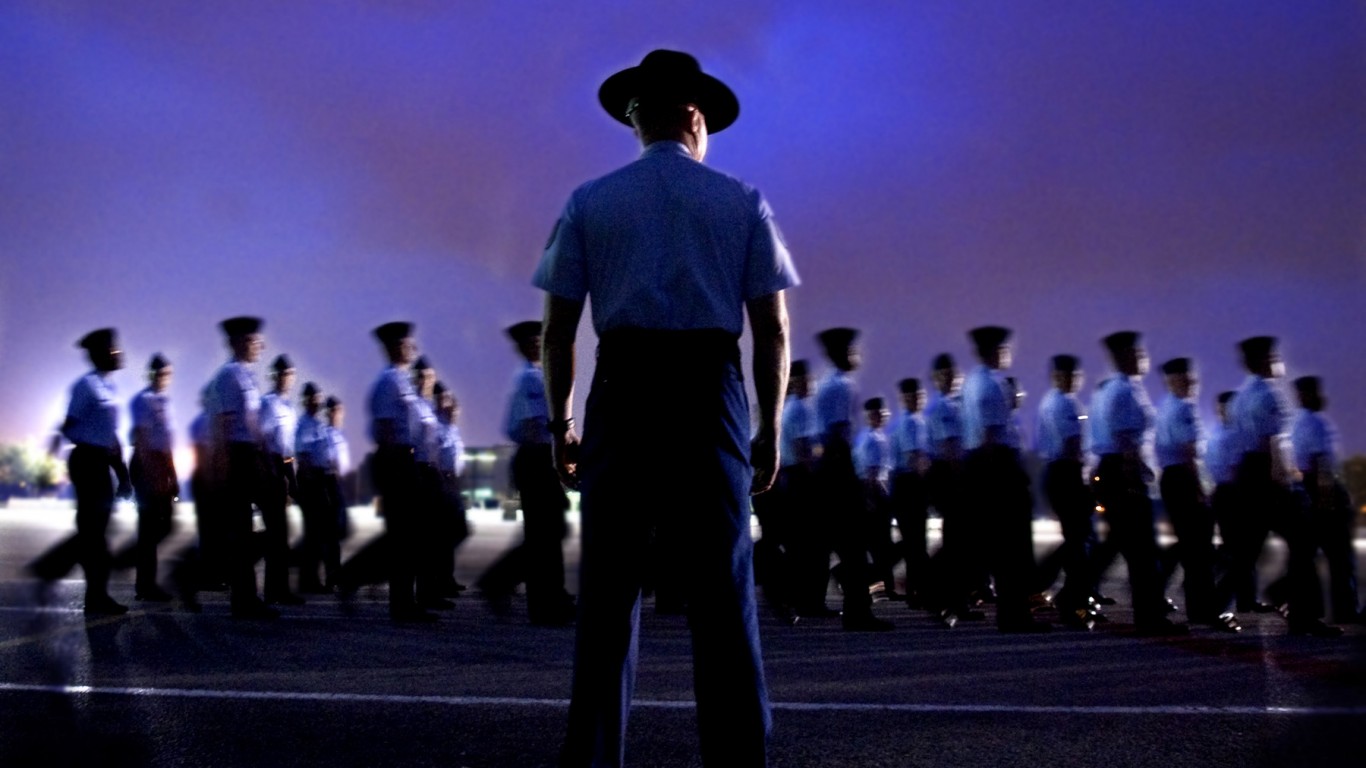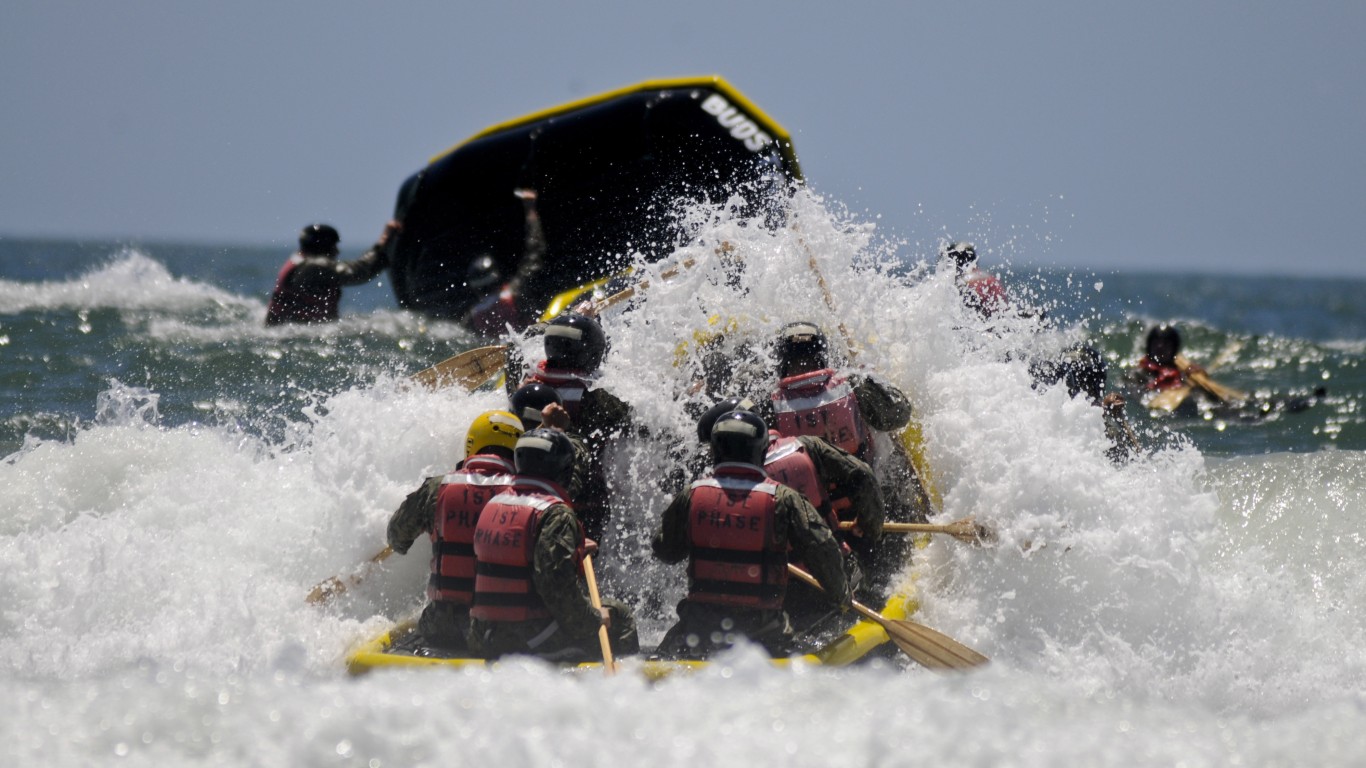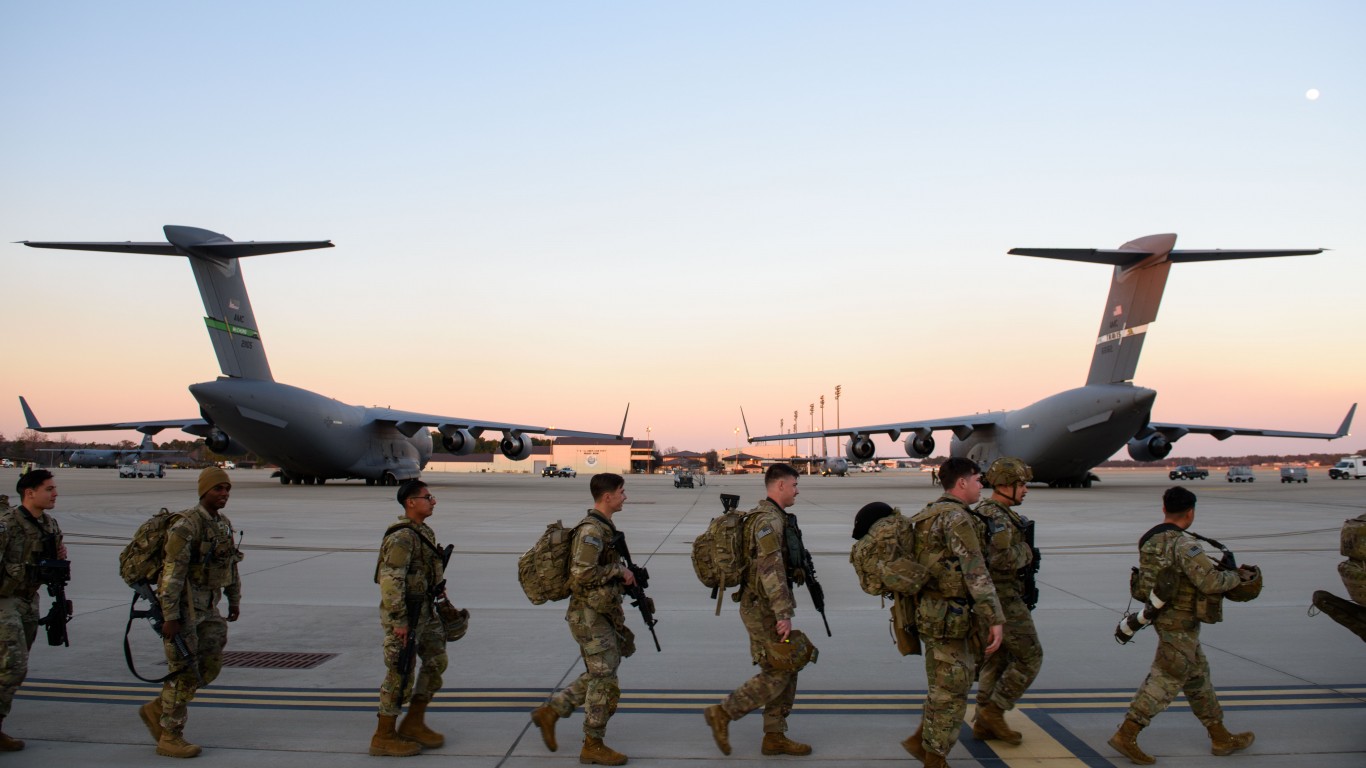
There are many reasons why the United States military is considered the best on the planet. Not only does it have the highest-funded military, but it also has technological superiority to many other nations as well as having one of the best-trained forces across all of its branches. It is always beneficial to have a strong military like the United States, but even more so during times of rising geopolitical tensions across the globe.
In all six of its branches, from the Army, the Navy, and the Coast Guard, to the Air Force, Marines, and Space Force, the U.S. military has a comprehensive training program in place. There are different tiers of training for each operational unit, such as the Green Berets, Navy SEALs, Rangers, and Delta Force.
24/7 Wall St. reviewed information on Military OneSource, a Department of Defense-funded information resource for members of the armed services to determine where the U.S. military trains its forces across all branches. We listed the military bases alphabetically and included the training conducted at each base and for which branch. There are multiple bases where a wide variety of training occurs and others where it is similar training but at different locations.
Many of the military installations on the list house multiple training facilities for multiple units and even multiple military branches. As some units need to complete pararescue training, which is a prerequisite for more specialized operators, there is some crossover training between units at certain bases. (Also see, the largest military base in each state.)
Practically all of the basic training is standardized down to the day for whatever set duration each branch requires. Certain branches need more space for their basic training due to the sheer number of recruits. This is true of the Army as well as the Marine Corps. However, just because these recruits may train in different bases does not mean they are receiving different training. (Here are the 11 newest US military bases.)
Here are the training bases used by the U.S. military
Camp Geiger, North Carolina

- Branch: Marine Corps
- Type of training: Infantry Training Battalion: 59 days
Camp Lejeune, North Carolina
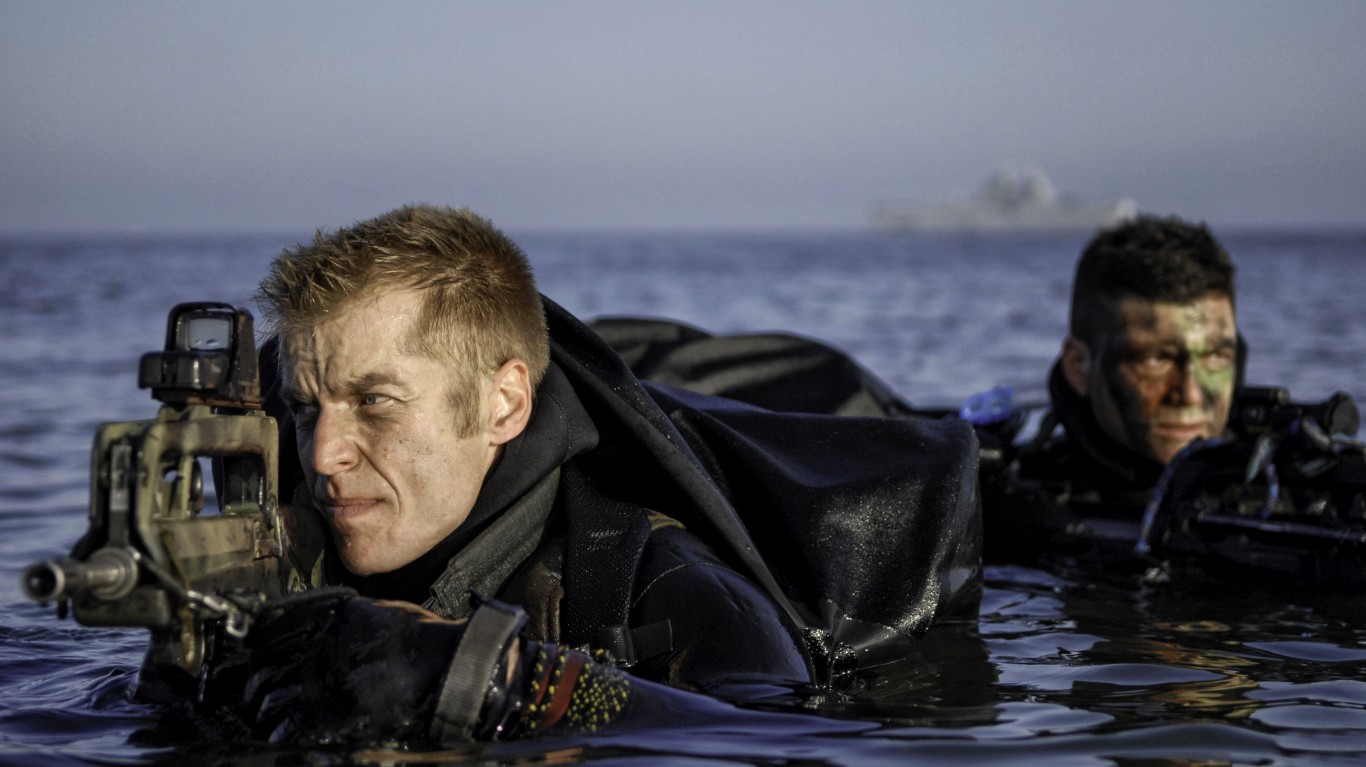
- Branch: Marine Corps
- Type of training: Marine Raiders Training: 9 months
Camp Pendleton, California
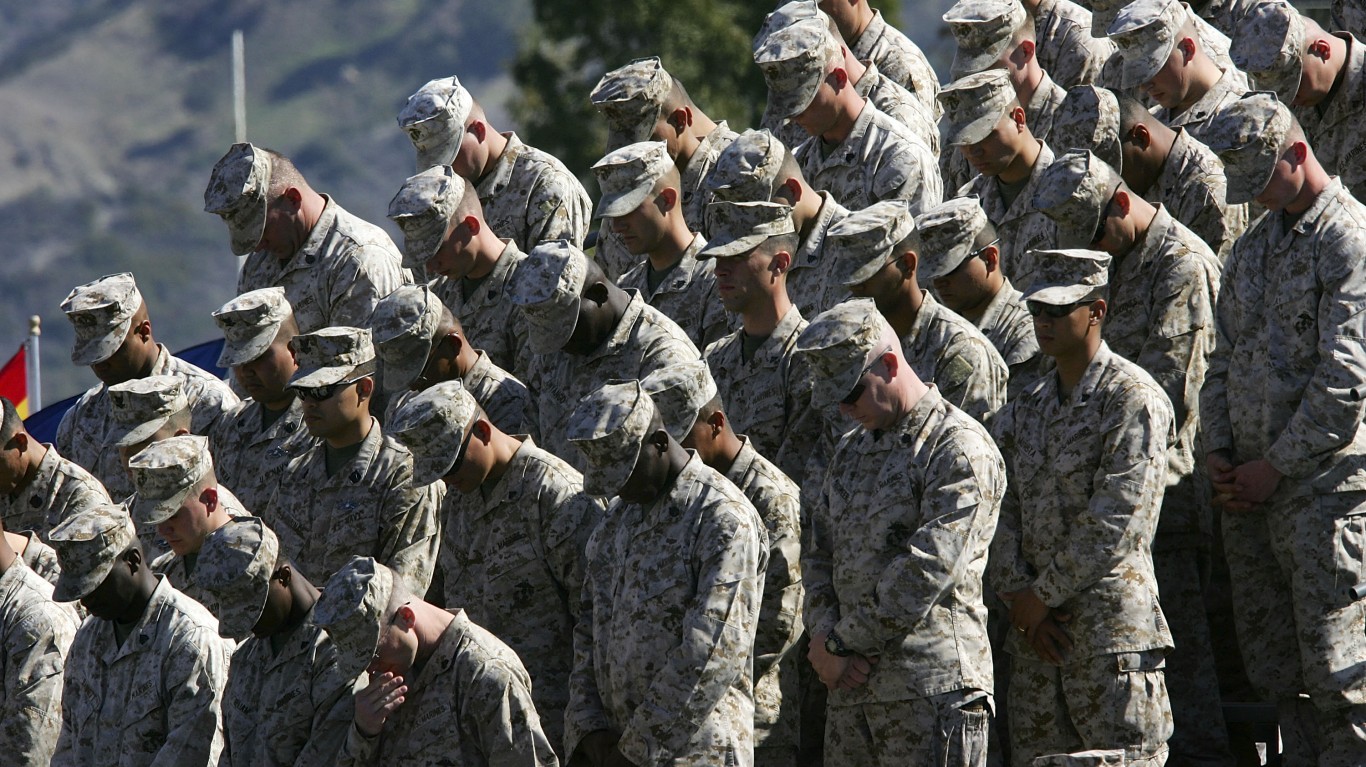
- Branch: Marine Corps
- Type of training: Marine Combat Training Battalion: 29 days; Force Recon Training: 9 weeks
Cape May, New Jersey
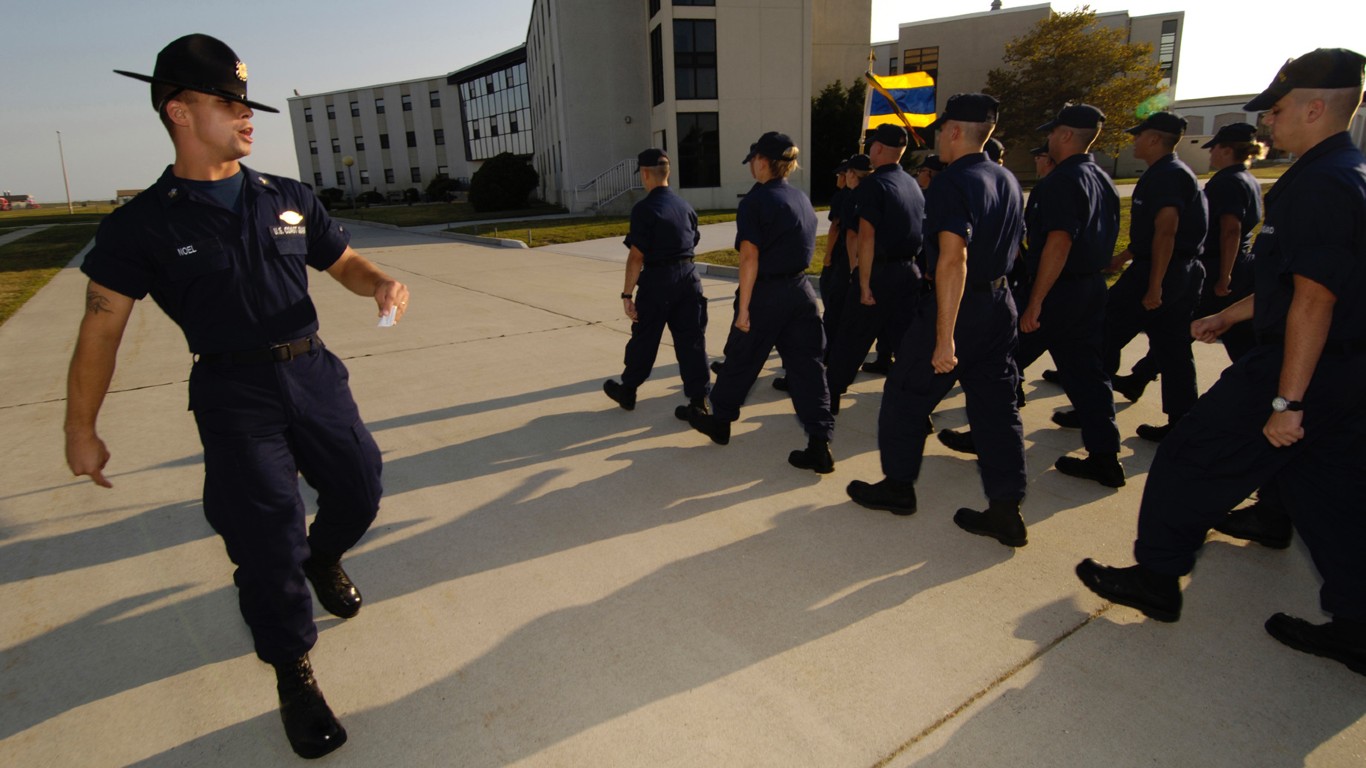
- Branch: Coast Guard
- Type of training: Basic Training: 8 weeks
Fairchild Air Force Base, Washington
- Branch: Air Force
- Type of training: Air Force Special Operations Weathermen Training: 138 weeks
Fort Benning, Georgia
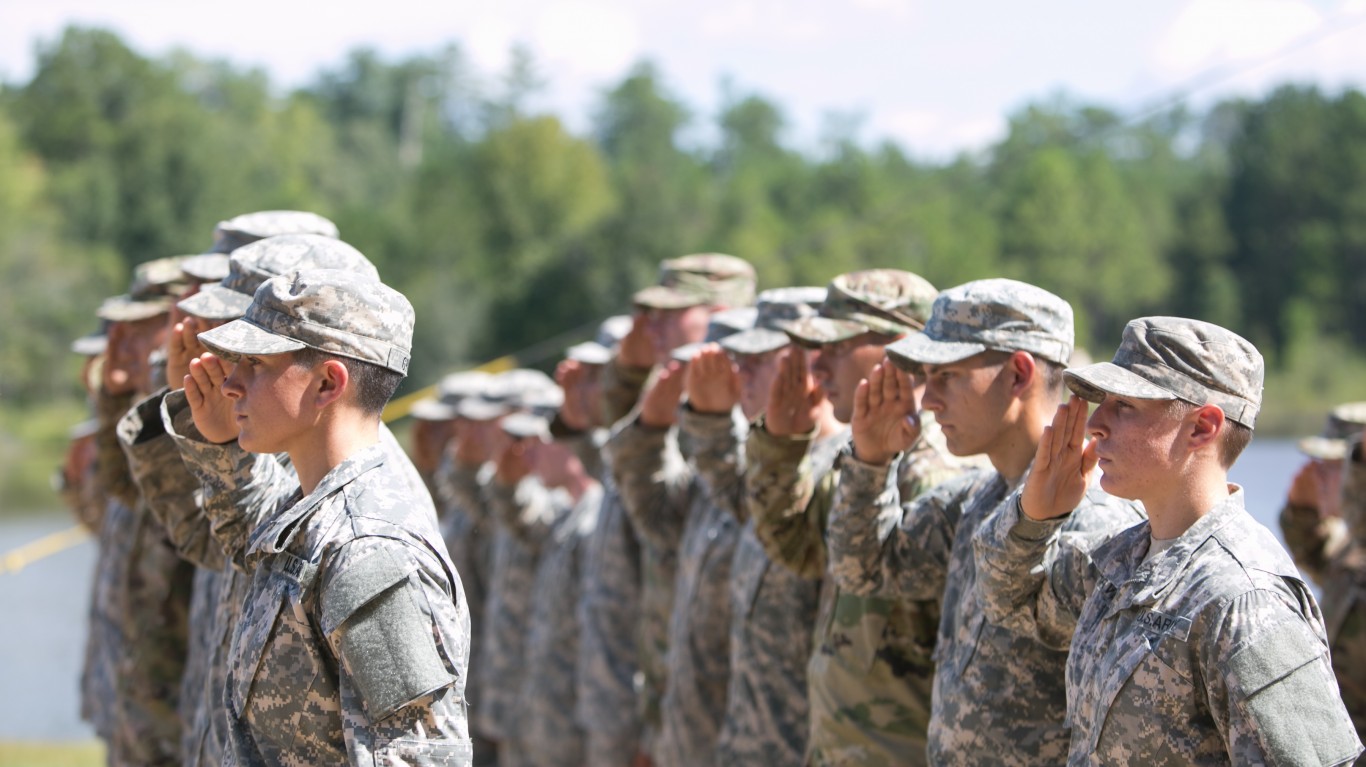
- Branch: Army
- Type of training: Basic Training: 10 weeks
Fort Bragg, North Carolina

- Branch: Army, Air Force
- Type of training: Army Green Berets Training: 61 weeks; Delta Force Training: 6 months; Air Force Pararescue Specialists Training: 70 weeks
Fort Campbell, Kentucky
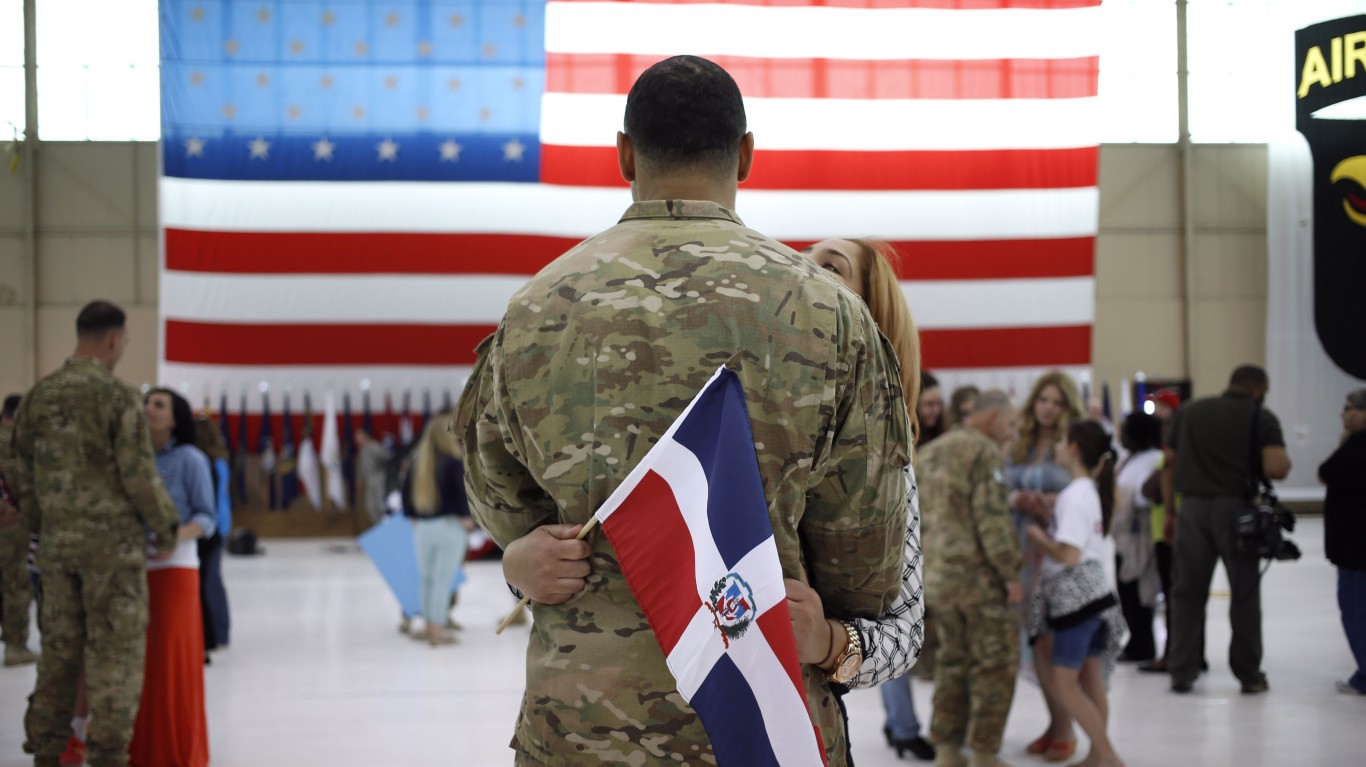
- Branch: Army
- Type of training: SOAR Night Stalkers Training: 6 weeks
Fort Jackson, South Carolina
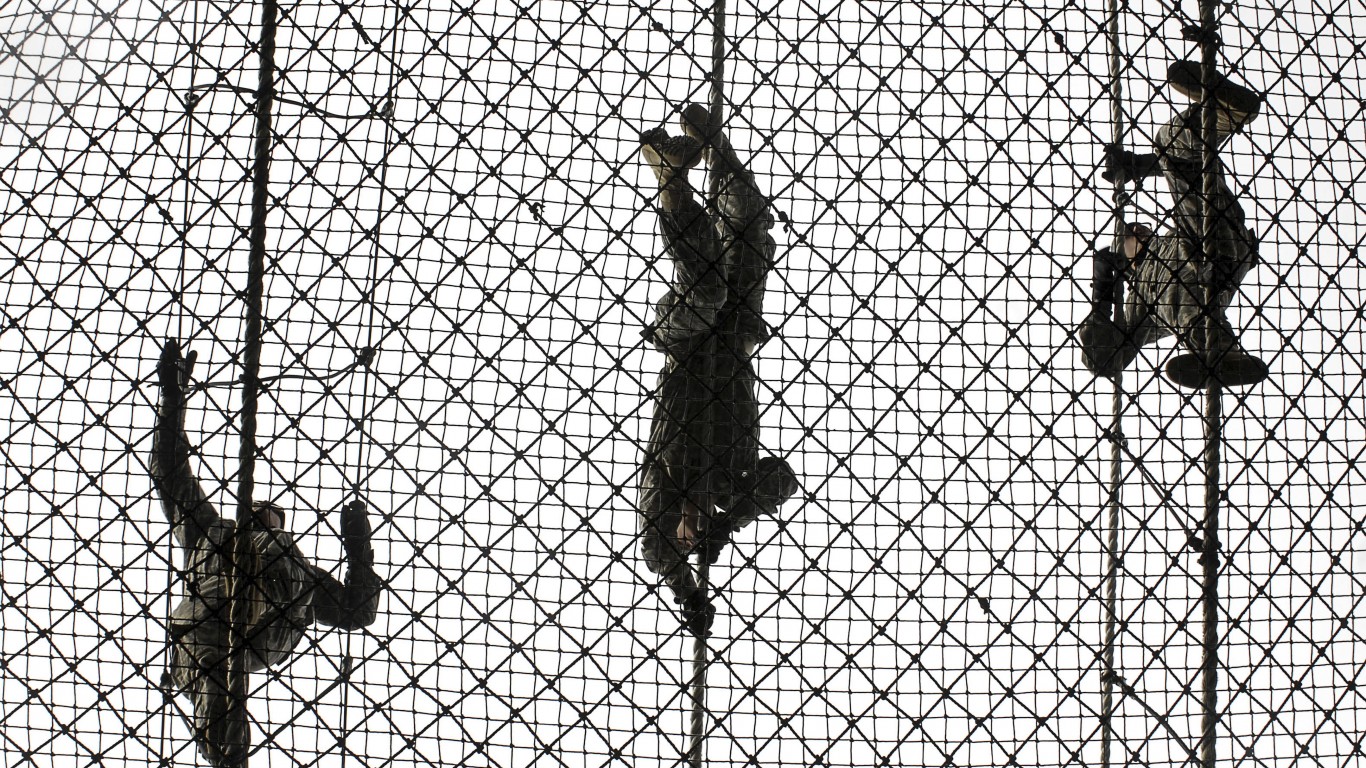
- Branch: Army
- Type of training: Basic Training: 10 weeks
Fort Knox, Kentucky
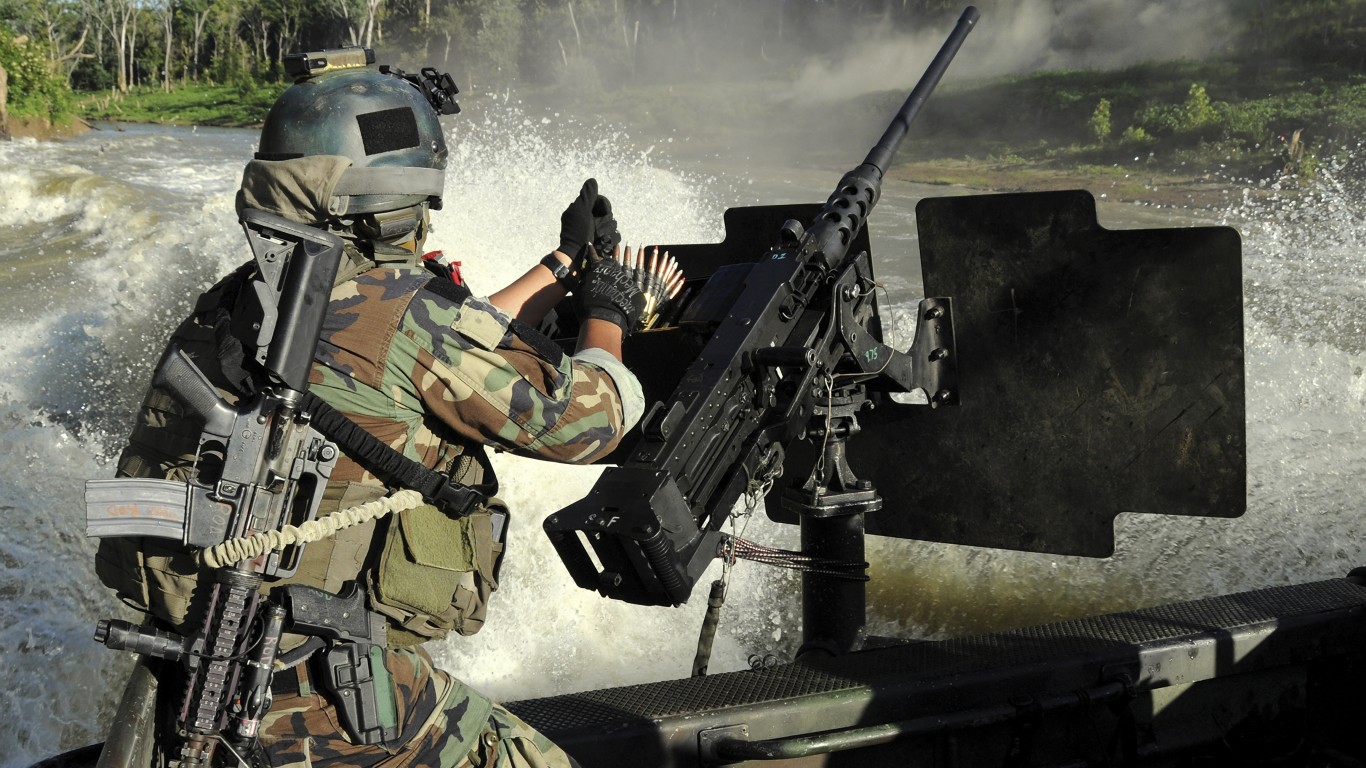
- Branch: Army
- Type of training: Basic Training: 10 weeks
Fort Leonard Wood, Missouri
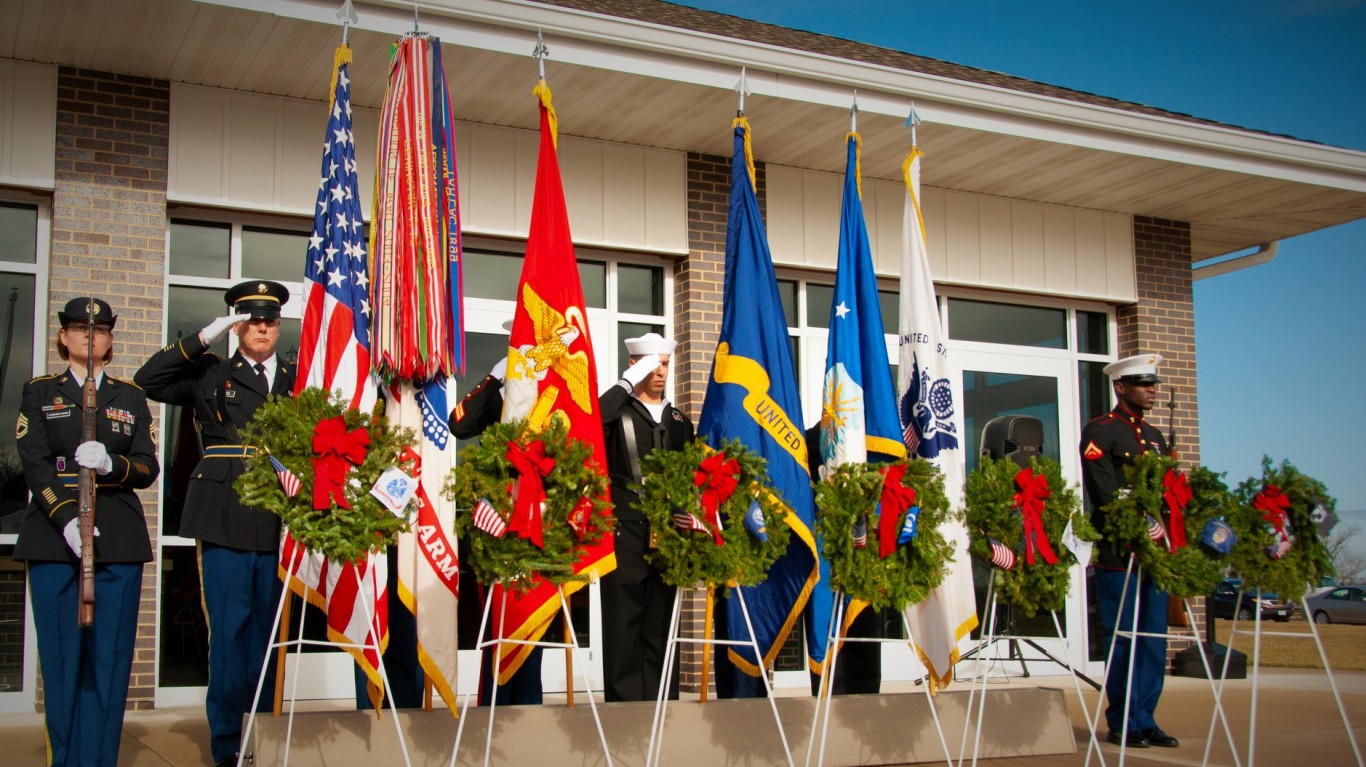
- Branch: Army
- Type of training: Basic Training: 10 weeks
Fort Sill, Oklahoma
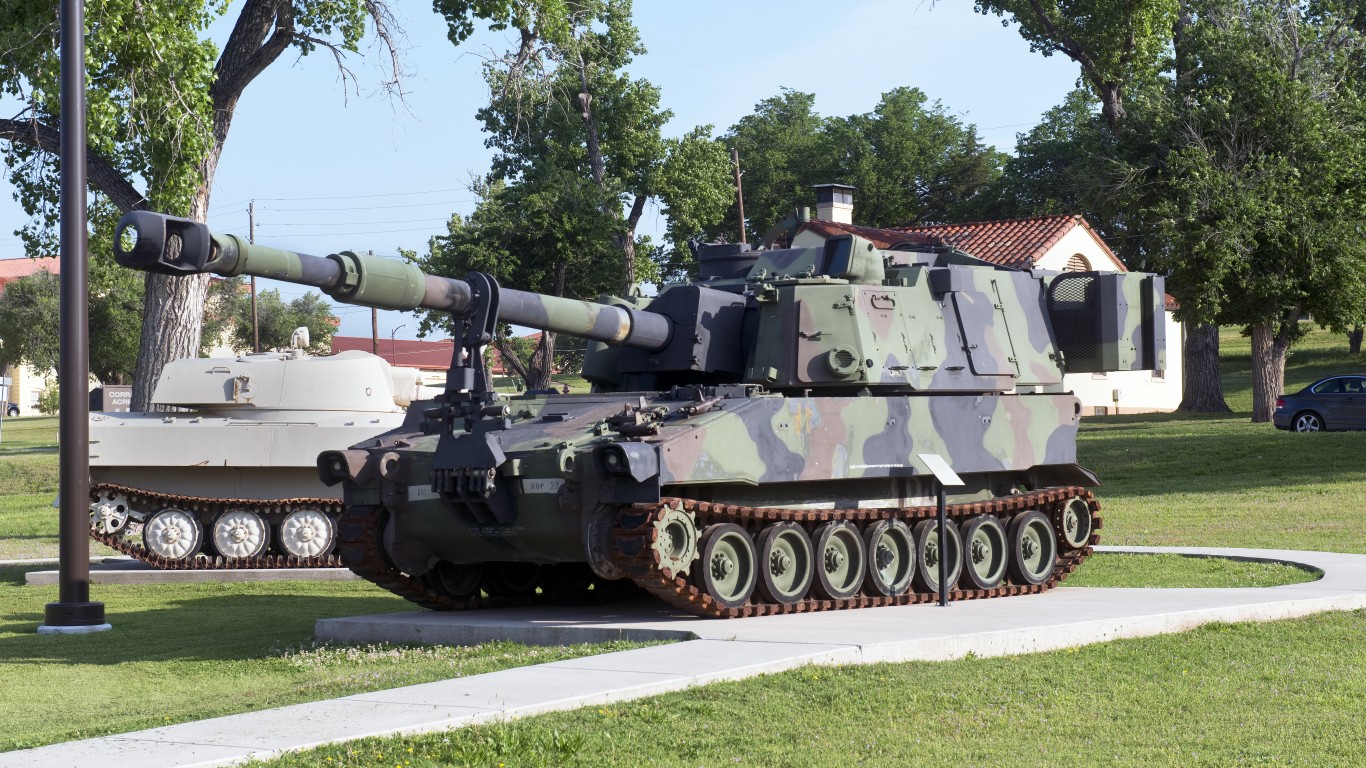
- Branch: Army
- Type of training: Basic Training: 10 weeks
Great Lakes, Illinois
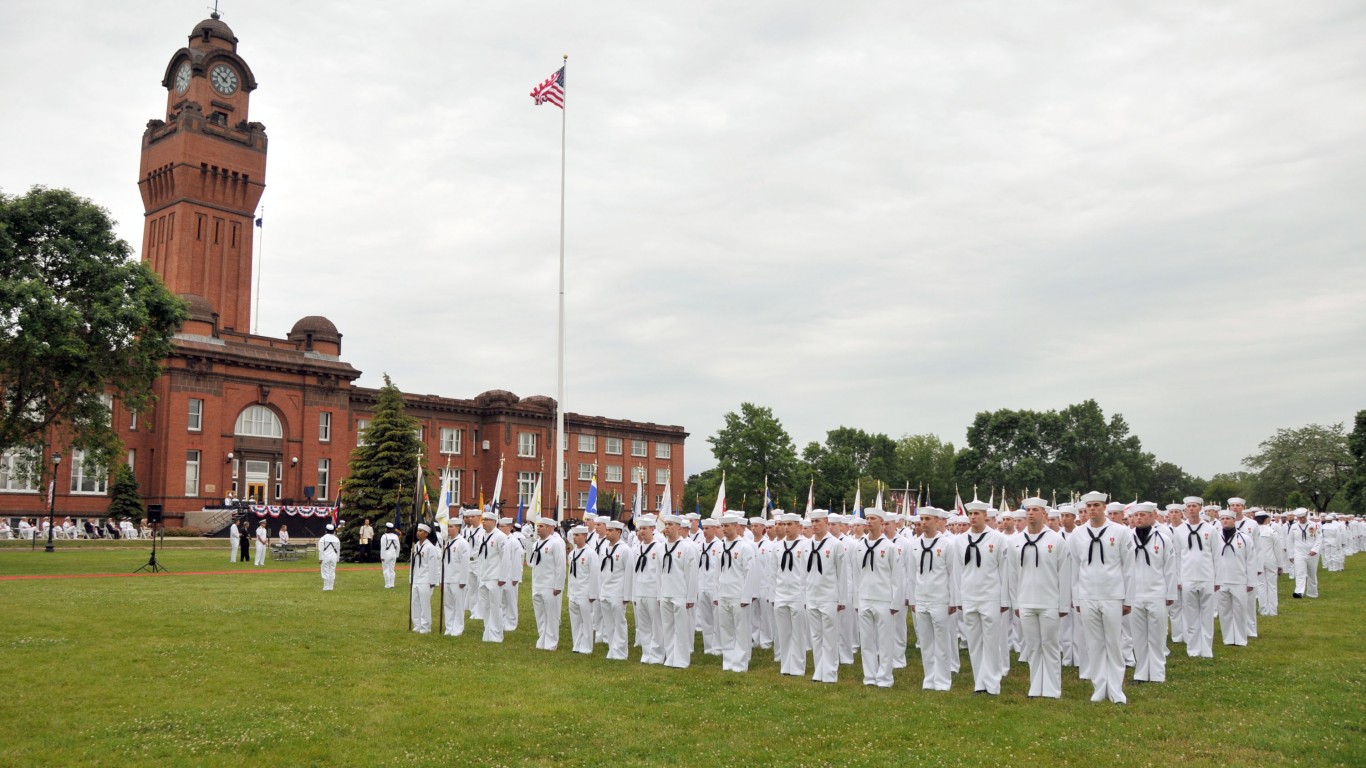
- Branch: Navy
- Type of training: Basic Training: 7 weeks
Joint Base San Antonio
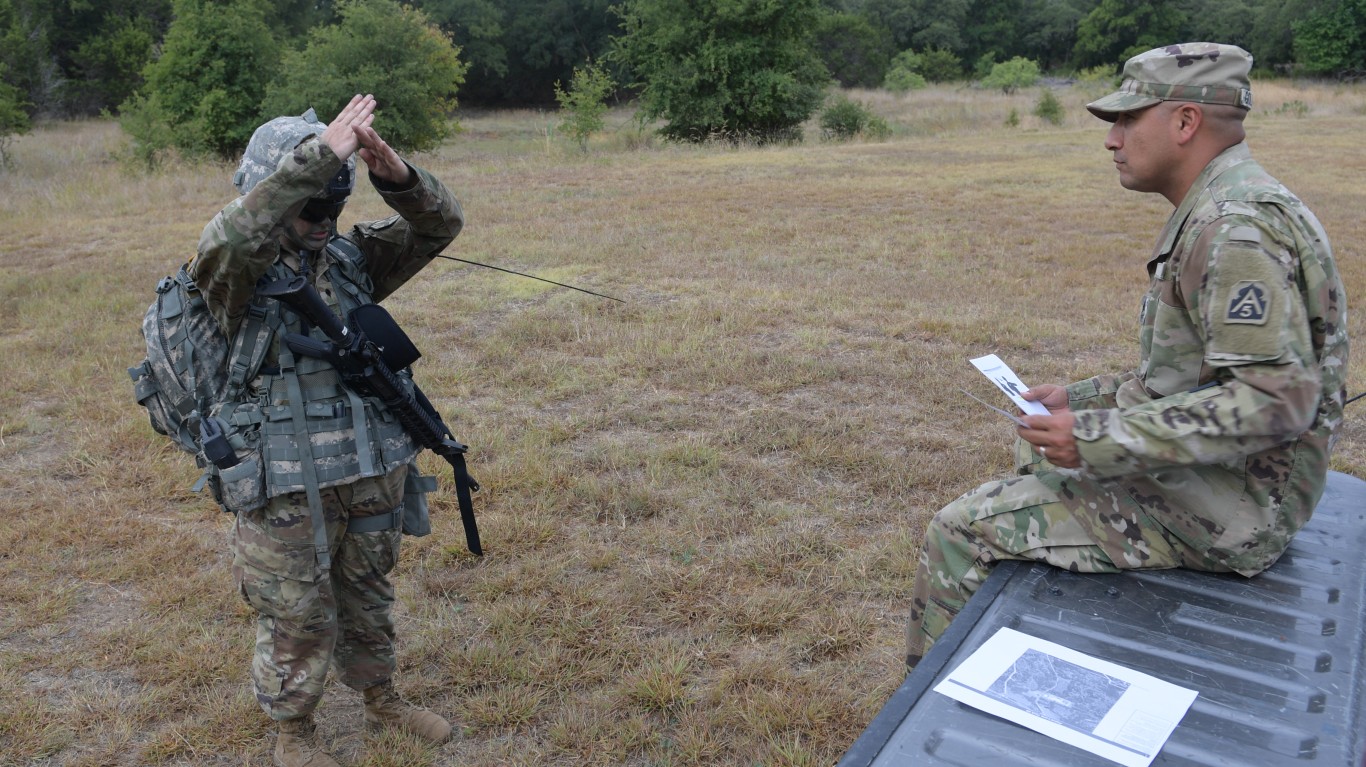
- Branch: Space Force
- Type of training: Basic Training: 6 weeks
Lackland Air Force Base, Texas
- Branch: Air Force
- Type of training: Basic Training: 8-and-a-half weeks; Air Force Combat Controller Training: 94 weeks
Marine Corps Recruit Depot in Parris Island, South Carolina
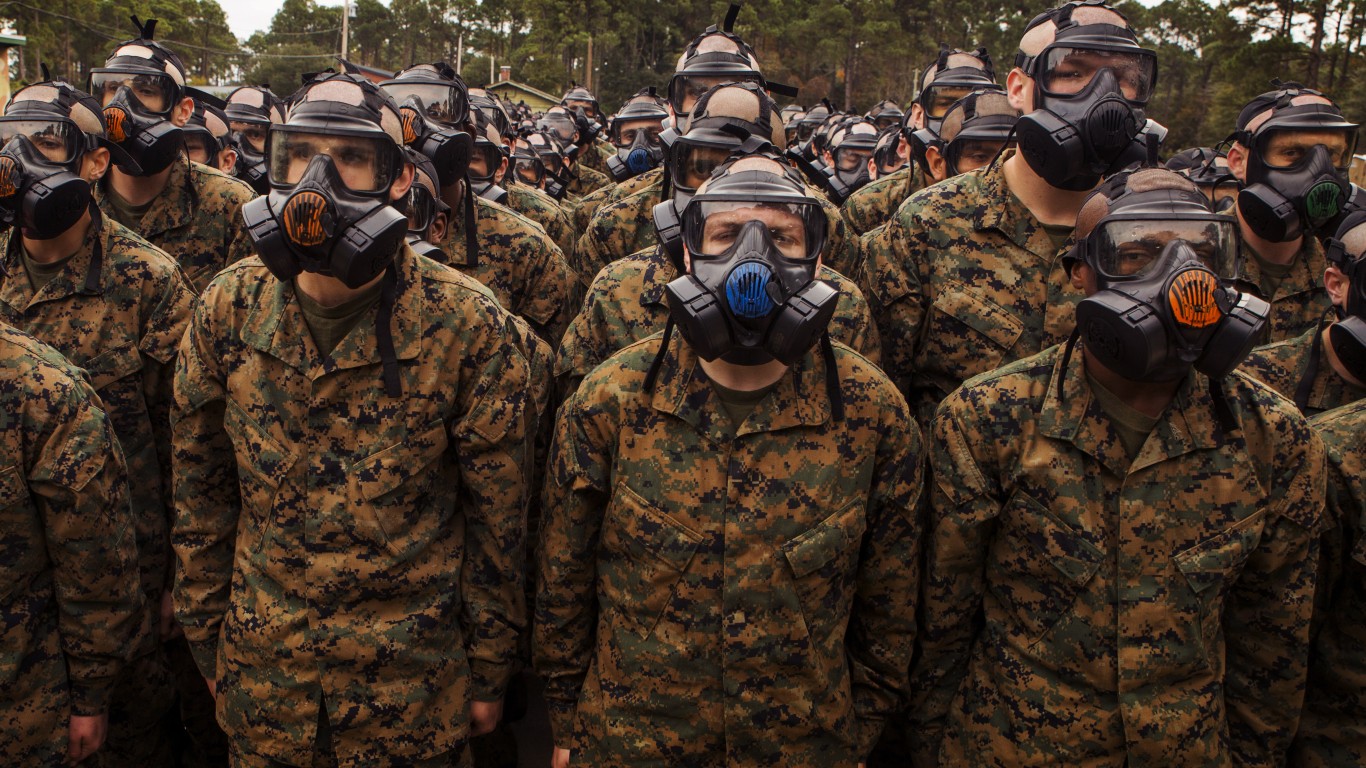
- Branch: Marine Corps
- Type of training: Basic Training: 12 weeks
Marine Corps Recruit Depot in San Diego, California
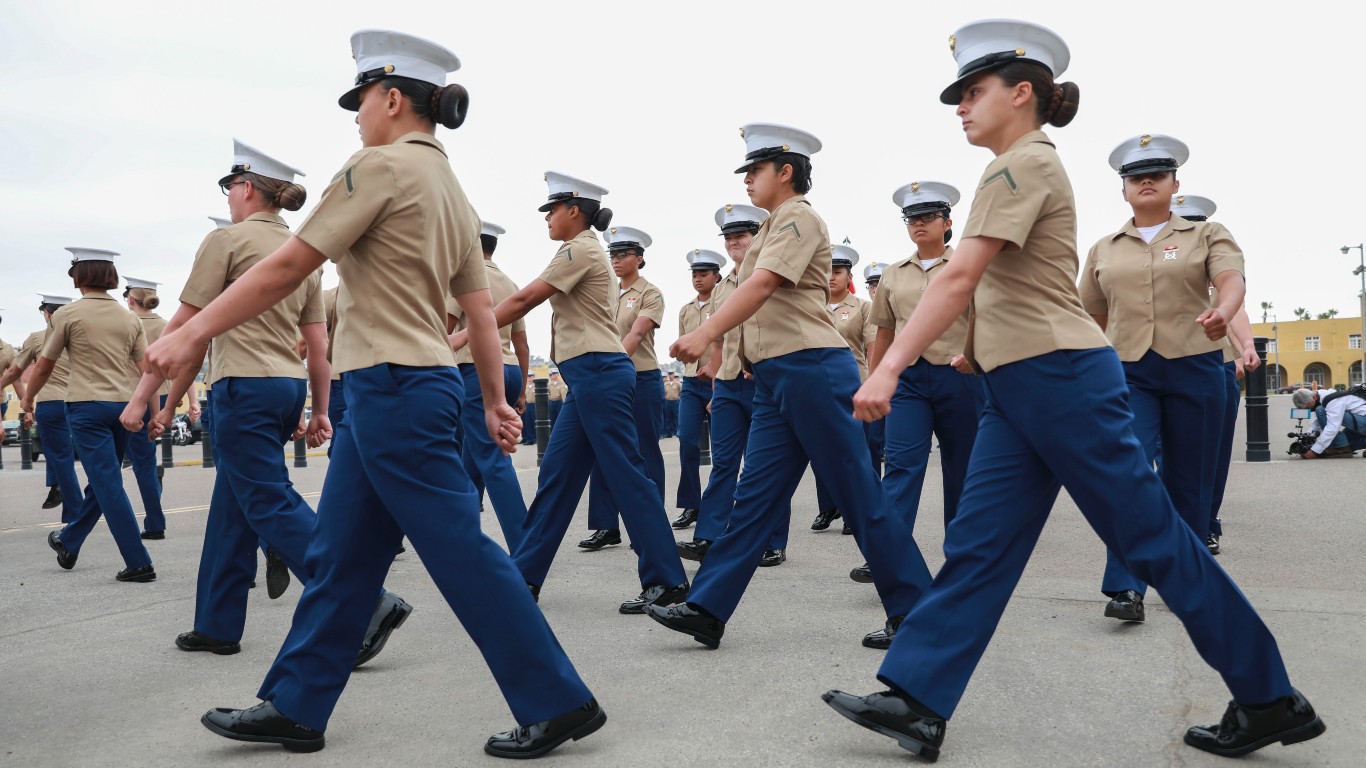
- Branch: Marine Corps
- Type of training: Basic Training: 12 weeks
Naval Special Warfare Training Center Coronado, California
- Branch: Navy
- Type of training: Navy SEALs Training: 12+ months
Naval Station Newport, Rhode Island
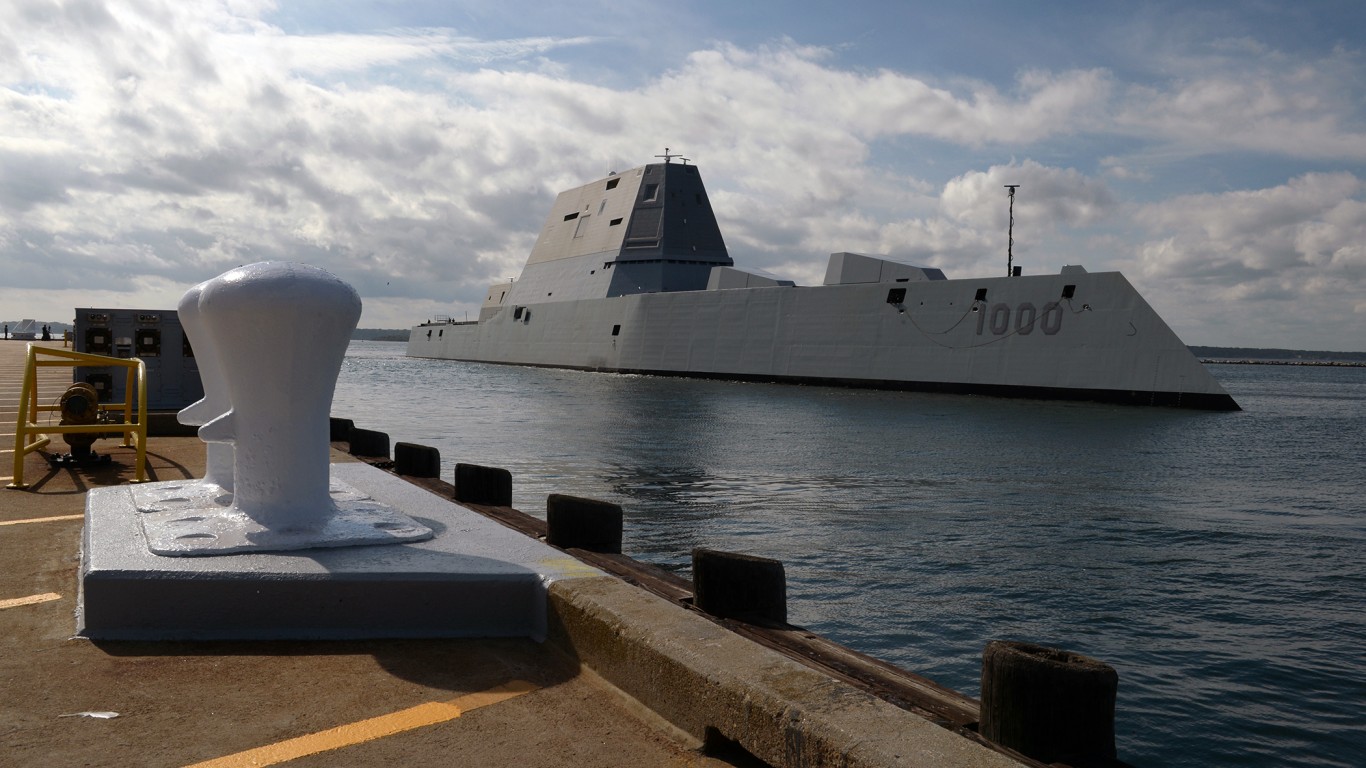
- Branch: Navy
- Type of training: Navy Officer Candidate School Training: 13 weeks
Quantico, Virginia

- Branch: Marine Corps
- Type of training: Marine Officer Candidate School Training: 6 months
Yuma Proving Grounds, Arizona
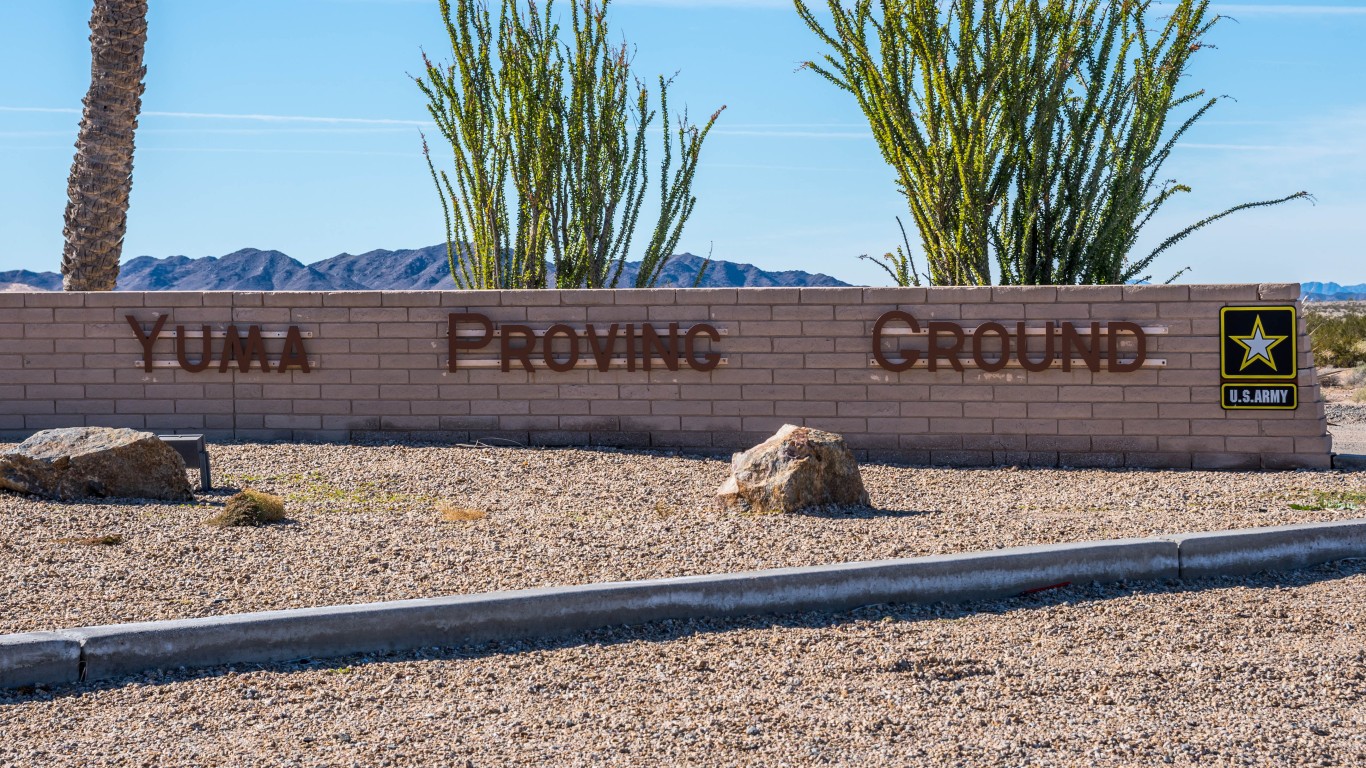
- Branch: Air Force
- Type of training: Air Force Pararescue Specialists Training: 70 weeks
100 Million Americans Are Missing This Crucial Retirement Tool
The thought of burdening your family with a financial disaster is most Americans’ nightmare. However, recent studies show that over 100 million Americans still don’t have proper life insurance in the event they pass away.
Life insurance can bring peace of mind – ensuring your loved ones are safeguarded against unforeseen expenses and debts. With premiums often lower than expected and a variety of plans tailored to different life stages and health conditions, securing a policy is more accessible than ever.
A quick, no-obligation quote can provide valuable insight into what’s available and what might best suit your family’s needs. Life insurance is a simple step you can take today to help secure peace of mind for your loved ones tomorrow.
Click here to learn how to get a quote in just a few minutes.
Thank you for reading! Have some feedback for us?
Contact the 24/7 Wall St. editorial team.
